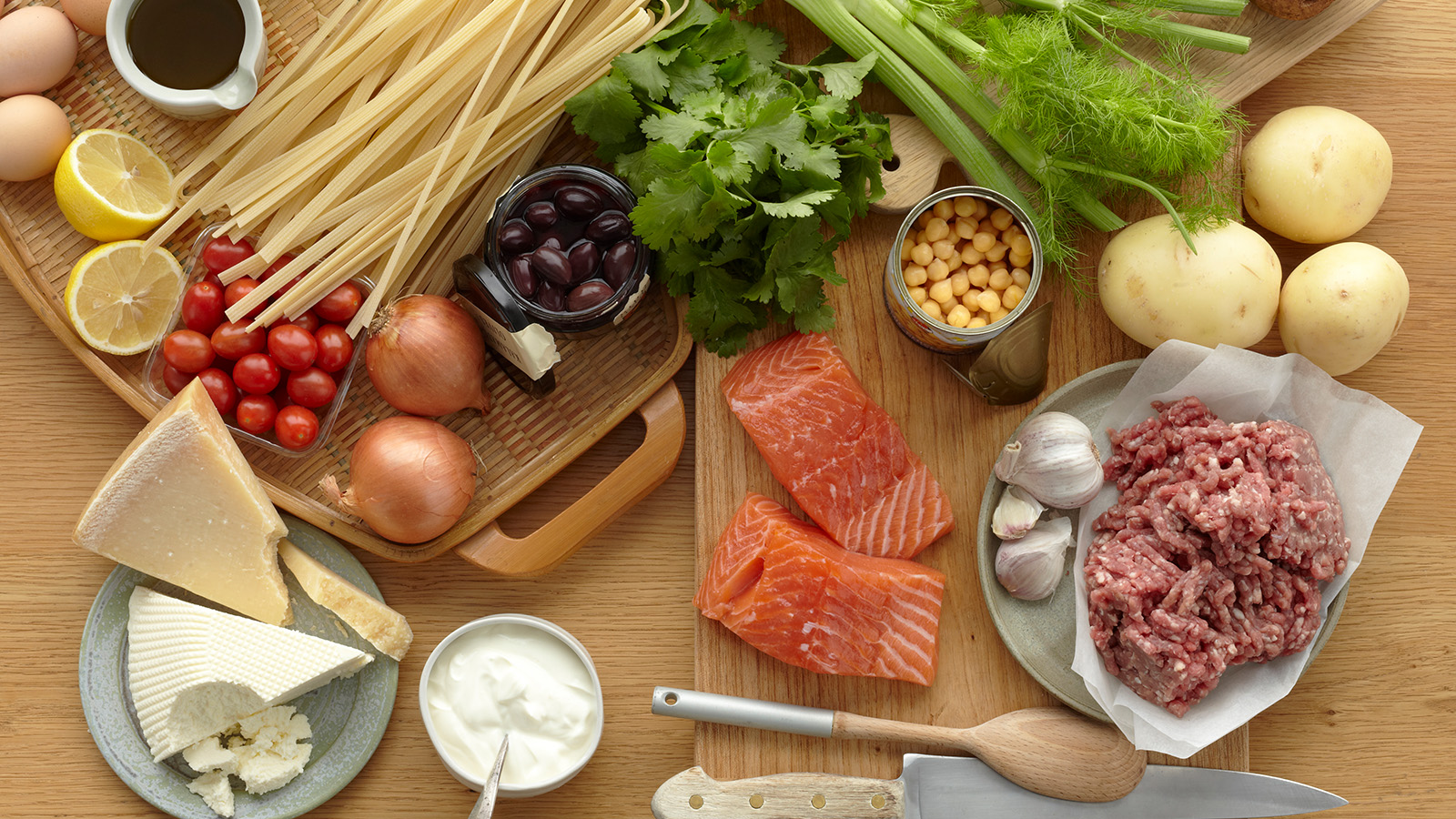Eating healthy with cystic fibrosis

Many people living with cystic fibrosis (CF) have trouble getting nutrients from food. They may not be able to stay at a healthy weight. That’s because thick mucus builds up in their pancreas. This organ helps digest food. It’s harder to break down and absorb food.
Good health needs good nutrition. Here are some key steps:
- Eat a balanced diet
- Get enough calories
- Drink lots of fluids
- Take enzymes with all snacks and meals
Eat a balanced diet
People with CF usually need to eat more calories every day than people who don’t have CF. That’s because they don’t absorb all their calories. Every person has different eating needs. Work with your dietitian. They’ll help you find the right foods for your health needs.
Your eating plan may include:
- Protein. Protein builds muscles. About 15 to 20 percent of your calories should be from protein. Eat foods like meat, fish, eggs, cheese, soy and nuts.
- Fats. Fatty foods have more calories. People with CF should get 35 to 40 percent of their calories from fat. Fat also gives you essential fatty acids and fat-soluble vitamins. Choose unsaturated fats when you can. Here are tips to get more healthy fats:
- Use olive, corn, soy and sunflower oils.
- Add butter or oil to vegetables or pasta.
- Always use full -fat dressings and cream cheese.
- Add nut butters to smoothies.
- Eat a handful of nuts.
- Carbohydrates. Carbs give you calories and energy. Try to eat healthy carbs like cereals, whole-grain breads and pasta, fruits and vegetables. Avoid carbs with added sugars. Get more calories from dried fruits, whole milk in cereal and nuts.
- Calcium: CF raises your risk for weak, brittle bones (osteoporosis). Eat more foods and high-fat dairy to lower your risk. Look for fruit juices with added calcium.
- Essential fatty acids. Essential fatty acids are important for brain health. They’re also good for overall growth and health. They’re called omega-3 and omega-6 fatty acids. You’ll find them in fish oils. So get plenty of fish in your diet. Eat flaxseeds and chia seeds, too.
- Fat-soluble vitamins like A, D, E and K. These vitamins are healthy for your eyes, bones and growth. They help blood clotting. They help you make red blood cells. CF prevents you from absorbing these vitamins. So, get them with a vitamin supplement made just for CF.
- Iron. Iron helps fight infection. It also carries oxygen to your body’s cells. Get iron from meats, cereals, dried fruits and dark green, leafy veggies.
- Zinc. Zinc helps growth, healing and fighting infection. Get more zinc from meats, eggs and seafood. You can also take a multivitamin with zinc.
Stay hydrated
It’s important to stay hydrated with CF. Fluid helps keep mucus thinner. It helps food move through your gut. With CF, you may not always feel thirsty. That’s because CF makes you lose more salt. Know when your body is dehydrated. You may feel tired or dizzy. You may have headaches or muscle cramps.
Here are tips to stay hydrated:
- Eat more salt. You’ll replace the salt lost from sweating. It’s really important when you exercise. Add salt to your food. Eat salty snacks like pretzels, salted nuts and chips.
- Drink water throughout your day. Keep a full water bottle on hand. Drink about 2 liters of liquid a day. Younger children may need about 1 to 1.7 liters a day. Talk to your doctor about how much fluid you should drink.
- Drink water, milk and sports drinks. Avoid caffeine and alcohol. They can make your body lose fluids.
Get enough calories
Many people with CF need to add dietary supplements. This is especially true for children. Supplements help add calories, protein and nutrients to your diet. Get more calories with nutritional shakes. Make these at home. Or buy them at a store (such as Boost or Ensure).
Many children are picky eaters. It’s hard to make sure your child eats enough calories. Try eating meals as a family. Make meals fun and social. This helps build healthy eating habits.
Take enzymes
You may also need pancreatic enzymes. These help absorb nutrients from your diet. You usually need to take enzymes every time you eat.
Your eating plan should fit your needs. Work with your dietitian. They’ll help you find the diet and supplements that work best for you.
This information is not a substitute for medical advice or treatment. Talk to your doctor or health care provider about your medical condition and prior to starting any new treatment. CVS Specialty assumes no liability whatsoever for the information provided or for any diagnosis or treatment made as a result, nor is it responsible for the reliability of the content.
CVS Specialty does not operate all the websites/organizations listed here, nor is it responsible for the availability or reliability of their content. These listings do not imply or constitute an endorsement, sponsorship, or recommendation by CVS Specialty.
This document contains references to brand-name nutrition products that are trademarks or registered trademarks of nutrition manufacturers that are not affiliated with CVS Specialty.
